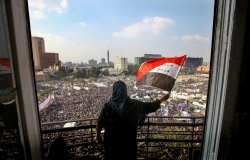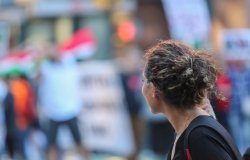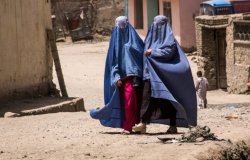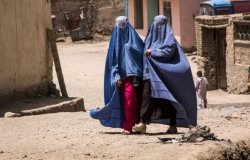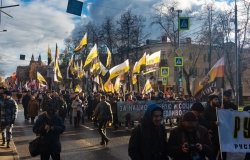Iran: A Regime at a Loss?
Iranian women have led protests in Iran for eleven weeks. The regime maintains its hardline position, but other elites are showing support and advising moderation. TIME magazine called them “The Heroes of 2022”. Despite brutal tactics, they are staying in the streets.
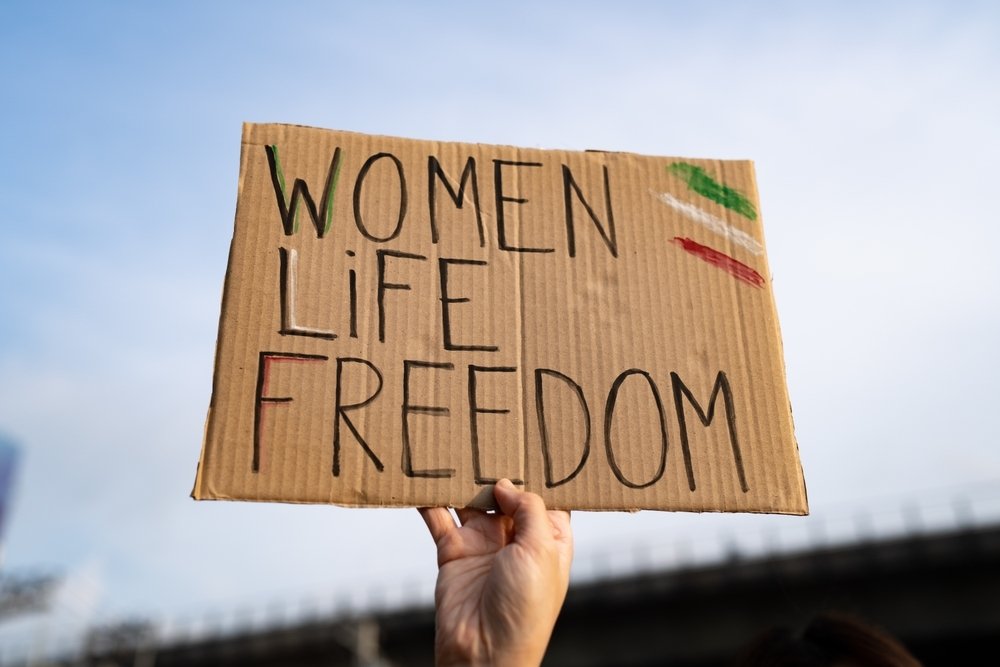
Wachiwit/shutterstock.com
In a double-cover issue, TIME magazine named Ukrainian President Volodymyr Zelensky “Person of the Year”, while it deservedly named Iranian women “Heroes of 2022.” Zelensky is courageously fighting aggression by a foreign invader. Iranian women are courageously fighting aggression by a government against its own people. The protests they launched in the name of Mahsa Amini, the young woman from Iran’s Kurdistan region who was killed by the morality police, have grown into an uprising of the nation’s young against a brutally repressive government.
The regime may have expected that, as in the past, the use of arrests, imprisonment and killing of demonstrators would bring a quick end to the protests. But not this time. The protests are now in their eleventh week, and the target is no longer simply the imposition of the hijab on women; the target is the regime itself.
To the initial and highly popular slogan of “Women, Life, Liberty,” has been added the cry of “Death to the Dictator,” meaning the Supreme Leader Ayatollah Khamenei, who symbolizes the regime. And while the young in universities, high schools, and even elementary schools have remained the principal engine of the protests, there have also been scattered strikes by factories and—ominously for the government—days when shops and bazaars in cities across the country have shut down in sympathy with the protestors.
The regime’s crackdown
Confronted by a younger generation that refuses to be intimidated, the regime has continued to rely on brute force. But it is also showing some signs of confusion or uncertainty on how best to bring an end to this uprising. The crackdown, if anything, has grown more vicious. The Guardian, in a December 8 article based on sources in hospitals, wrote that the Basij paramilitary forces were deliberately firing at women’s faces and genitals in order to disfigure them. Earlier reports stated that the Basij were shooting at men’s eyes and blinding them. CNN and Iran Wire have reported that young women and men taken to prison are being raped.
The courts have so far found eleven people guilty of “waging war against God”
According to Human Rights Activists in Iran, some 18,000 people have been arrested and nearly 500 killed. Among the dead are 50 or more children and 43 women. Trials behind closed doors have also begun. The courts have so far found eleven people guilty of “waging war against God”—a concept from early Islam that is a convenient catch-all for the revolutionary courts to use against dissidents and sentence them to death.
Under this charge, on December 8 the government sentenced and executed a young man of 23, Mohsen Shekari, for allegedly stabbing a Basiji. The trial took place without a public hearing, and he was denied his own lawyer, leaving no way of verifying the accuracy of the charges. The execution has understandably alarmed families of those found guilty of the same—“waging war against God.” The mother of another young man convicted of the same crime has been begging people—anyone—to help save her son from execution. Today, the regime held its second execution of a protester in the city of Mashhad, Majidreza Rahnavard, 23, also accused of stabbing a Basij officer.
In public statements, the regime remains firm in its condemnation of the protesters as “rioters” and the instruments of foreign powers. However, on some issues the remarks of its spokesmen are also contradictory—an indication, perhaps, that the government is at a loss on how to deal with a protest movement, against which force has not proved effective enough. On one hand, the head of the judiciary, Mohseni Ejei, told the Basij forces to show no leniency toward the protestors. Ayatollah Khamenei and President Ebrahim Raisi praised the Basij for their effective work.
In the meantime, women have been going about freely ignoring the hijab, even as the government goes on killing people because it fears the demonstrations will grow and overwhelm it.
On the other hand, the attorney general, Mohammad Jafar Montazeri, announced that the morality police will be suspended from the streets. Almost immediately, a member of parliament insisted that the enforcement of the hijab is here to stay. (For good measure, he added that women who violate a soon-to-be announced set of regulations on the hijab will have their bank accounts frozen). To add to the confusion, a spokesman for the Office of Promoting the Good and Forbidding Evil offered the view that enforcement of the hijab must continue but in “newer” ways and by the use of “electronic” means. In the meantime, women have been going about freely ignoring the hijab, even as the government goes on killing people because it fears the demonstrations will grow and overwhelm it.
Others show support
We are also hearing dissenting voices from some former high officials and members of the elite. They are speaking out against harsh measures, advising moderation, and paying attention to the complaints of the protesters. Last week, former President Mohammad Khatami spoke out against the harsh measures employed by the security forces and advised the government to address the demands of the people. He praised the slogan of “Women, Life, Liberty” and spoke highly of the students and university professors, saying “Freedom and security should not be treated as in opposition to one another and that, as a result, freedom is trampled under the pretext of maintaining security, or that security...is ignored in the name of freedom.”
It is unlikely that the regime will listen to these voices of moderation. At the moment, it also seems unlikely that the young women and men of Iran’s Gen Z—the true heroes of this uprising—will leave the streets.
Former foreign minister Javad Zarif, the former speaker of parliament Ali Larijani, Alireza Beheshti, the son of one of the founders of the revolution Mohammad Beheshti, and the grandson of Ayatollah Khomeini, Hossein Khomeini, have all advised the government not to use force and listen to the grievances of the demonstrators. Badri Hosseini Khamenei, the sister of Ayatollah Khamenei and her daughter, Farideh Moradkhani, both criticized the Supreme Leader for the way the regime has handled the protest movement of the young. Mrs. Khamenei went so far as to ask the Revolutionary Guards to lay down their arms. Her daughter referred to the regime as a “child- killing regime.” Moradkhani was imprisoned after the tape of her talk was circulated on social media and sentenced to 3 years in prison.
It is unlikely that the regime will listen to these voices of moderation. At the moment, it also seems unlikely that the young women and men of Iran’s Gen Z—the true heroes of this uprising—will leave the streets. The outcome of this confrontation is anybody’s guess. It still hangs in the balance.
The views expressed in these articles are those of the author and do not reflect the official position of the Wilson Center.
About the Author


Middle East Program
The Wilson Center’s Middle East Program serves as a crucial resource for the policymaking community and beyond, providing analyses and research that helps inform US foreign policymaking, stimulates public debate, and expands knowledge about issues in the wider Middle East and North Africa (MENA) region. Read more

Middle East Women's Initiative
The Middle East Women's Initiative (MEWI) promotes the empowerment of women in the region through an open and inclusive dialogue with women leaders from the Middle East and continuous research. Read more


